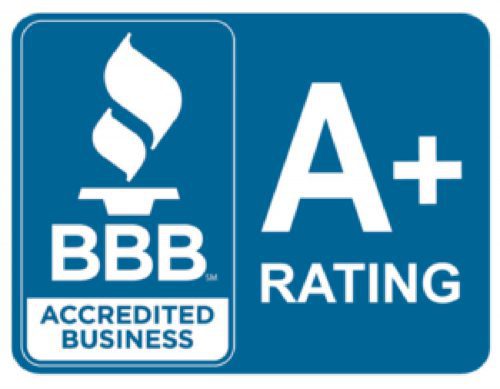Group B Streptococcus
Group B Streptococcus, also known as GBS or Group B strep, is a type of common bacteria that could cause an infection. It could be passed from a pregnant woman to her baby, as the bacteria are typically in the rectum, vagina, and intestines. Around 1 in 4 pregnant women have GBS bacteria in their bodies. Every year in the United States, around 930 babies get early onset-GBS disease, and around 1,050 babies get late-onset GBS disease.
When a pregnant woman reaches 36 or 37 weeks, a doctor needs to test her for GBS, as she may not even know she has it. The doctor will do a vaginal swab or culture. If a mother tests positive for the bacteria when she is pregnant, then a newborn is likelier to get GBS disease. Sadly, 4% to 6% of babies who develop GBS pass away from it.
While GBS can affect some people, it may live in other people’s bodies without showing any signs of infection. Pregnant women are not able to take antibiotics in order to prevent GBS in their babies prior to labor because the bacteria could just grow back. But when GBS is left untreated, then a baby could end up suffering from serious health problems.
Symptoms of Group B Streptococcus
Group B Streptococcus is difficult because a pregnant mother might not even know she has it. That’s why it’s so important for women to get tested during their third trimester.
However, if a woman does have GBS during labor, then there is only a small chance, 2%, that her baby will contract it. A baby may get it in the uterus when the mother’s water breaks or when they are traveling through the birth canal.
If the following factors are at play, then the chance of the baby contracting it will be higher:
- The mother had a urinary tract infection caused by GBS
- The mother had another baby with GBS
- The mother has a fever of more than 100.4 degrees Fahrenheit while she’s delivering the baby
- The mother’s water breaks 12+ hours before she delivers her baby
- The baby is born before a mother reaches 37 weeks
Then, once the baby is born, doctors may be able to tell that the baby has GPS if the baby is experiencing the following:
- They’re limp
- There is a lack of movement
- They have trouble breathing as well as feeding
- Their skin has a blue tinge to it
- They have a fever
- They have irregular heart rhythms
If GBS is not properly treated, then a baby could potentially develop health conditions like:
- Bacterial meningitis
- Cerebral palsy
- Brain damage
- Organ failure
- Sepsis
- Seizures
- Developmental and learning delays
- Cognitive impairments
- Sensory issues with vision and hearing
A doctor will need to diagnose the baby with GBS and associated illnesses so that the baby can begin treatment.
Treatment for Group B Streptococcus
If a mother has GBS, then during labor, she will be given antibiotics. If a baby is born before a mother can take antibiotics, then the baby may be given IV antibiotics after delivery. The baby might have to go to the NICU in order to be treated.
If the baby develops a health issue because of GBS, then treatment will vary. If they have seizures, they might have to take anticonvulsants, and if they get bacterial meningitis, they might need IV antibiotics. If they have sepsis, they may need to take heart and/or blood pressure medications, a ventilator to assist them with breathing, and IV fluids. If they have developmental and learning delays, then therapy could prove to be helpful.
How Do I Know if Medical Malpractice Caused Group B Streptococcus?
You cannot be certain that medical malpractice caused Group B Streptococcus until you contact an experienced birth injury lawyer and find out their professional opinion. They will look over the evidence you provide including witness statements, medical records, and photographs of injuries and see if you have a case.
Sometimes doctors make errors that would not qualify as medical malpractice. The legal system makes proving medical malpractice very difficult because if it were easy, people would sue their doctors and bankrupt them. Nobody would want to become a doctor. That’s why you need solid proof that medical malpractice actually occurred. Otherwise, your case could get thrown out immediately.
How Much Will I Receive From a Group B Streptococcus Settlement?
If your birth injury lawyer believes that medical malpractice did occur when your baby contracted GBS, then you may be able to receive compensation for damages such as:
- Medical bills
- Loss of companionship and enjoyment of life
- Pain and suffering
- Future medical care
- Loss of earning capacity
While medical bills, future medical care, and loss of earning capacity are economic damages, pain and suffering and loss of companionship and enjoyment of life are non-economic damages. The latter can be harder to calculate, but your lawyer will be able to determine how much compensation you should seek.
Your settlement amount is going to depend on the issues at play. For instance, if your baby received antibiotics and made a full recovery from GBS, then your settlement may be lower. If they developed long-term health issues, though, then your settlement could be higher in order to cover lifelong medical care.
Settlement Offers in a Group B Streptococcus Case
When you reach out to a birth injury lawyer, they will collect the evidence you provide them and help you gather more if you need it. Then, they will contact the doctor you believe was negligent and attempt to reach a settlement with them. If you believe the settlement isn’t high enough, your lawyer will be happy to renegotiate for you. If the doctor does not want to settle, you can always take them to court. Oftentimes, a defendant (a doctor) will settle before court so they don’t harm their reputation. And, in court, they could end up paying you a lot more in settlement money than if they had just settled with you beforehand. Your lawyer will work hard to get you the highest compensation possible.
Why Reach Out to a Birth Injury Lawyer?
In a time when you feel like you’ve been wronged, a birth injury lawyer will be in your corner. They will fight for you every step of the way so you can put all your energy into caring for yourself and your baby at this time.
Group B Streptococcus Birth Injury Attorneys
If your baby developed an illness because of GBS, then you may be entitled to compensation. You won’t know until you get in contact with a birth injury lawyer. When you’re ready, you can reach out to Gilman & Bedigian for help.
Contact Gilman & Bedigian 24/7 for a free consultation at (800) 529-6162.











